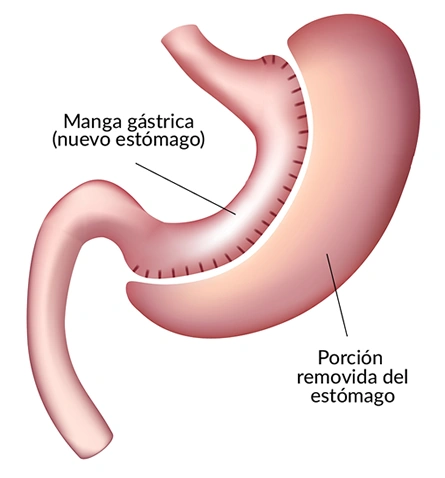Furthermore, removing the stomach significantly reduces the appetite-stimulating hormone ghrelin, thus reducing the desire to eat that characterizes obese patients. This procedure leads to an approximate loss of 70% of excess weight.
This procedure works through several mechanisms. First, the new stomach pouch has a considerably smaller volume than the normal stomach and helps significantly reduce the amount of food (and therefore calories) that can be consumed. However, the greatest impact appears to be the effect the surgery has on gut hormones that affect various factors, such as hunger, satiety, and blood sugar control.


• Restricts the amount of food the stomach can hold
• No foreign objects (AGB) or food flow diversion or rerouting (RYGB) required
• It involves a relatively short hospital stay, approximately 2 days
• Causes favorable changes in intestinal hormones that suppress hunger, reduce
appetite and improve satiety.